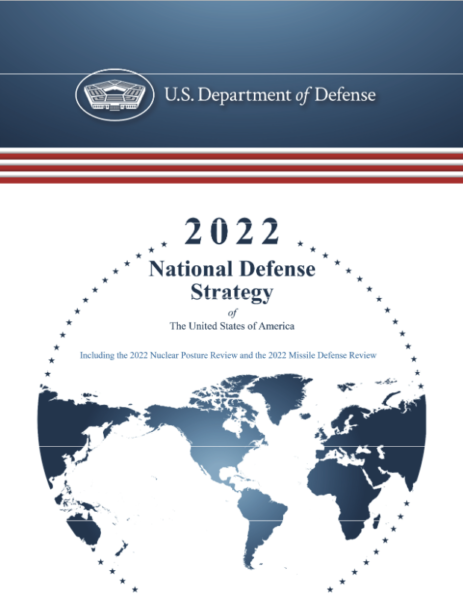CDR Salamander reads through a recent RAND report on the US National Defense Strategy and has thoughts:
Were you aware this tasker was working its way through the system?
Congress established the Commission on the National Defense Strategy by statute to examine and make recommendations with respect to the National Defense Strategy.
Well, RAND has the goods,
As part of the Commission’s role, it conducted a review of the “assumptions, strategic objectives, priority missions, major investments in defense capabilities, force posture and structure, operational concepts, and strategic and military risks” associated with the 2022 National Defense Strategy (PDF). The Commission called on RAND to provide administrative and analytic support.
Did you catch this yummy little morsel?
The current National Defense Strategy (NDS), written in 2022, does not account for ongoing wars in Europe and the Middle East and the possibility of a larger war in Asia. Continuing with the current strategy, bureaucratic approach, and level of resources will weaken the United States’ relative position against the gathering, and partnering, threats it faces.
Remember this tasty nougat center for later:
… does not account for ongoing wars in Europe and the Middle East and the possibility of a larger war in Asia.
Basically, they’re reminding us that we have a nation’s security running on an obsolete autopilot. Bravo Zulu for putting that marker out early. In a fashion, the report could have ended there. Probably should have ended there, but alas … no.
As Noah Robertson noted in his reporting, this report was not due until the end of the year. However, the commissioners decided to deliver it early so it could be part of the election conversation.
This election cycle has different plans.
While I appreciate the move — one I would have encouraged — I’m not sure either party wants to engage on the topic as there is only so much bandwidth in an election year … and … will you look at what happened in the last month?
However, there is a mission to complete … and they completed it early. There is praise due for that.
[…]
I have … concerns in other foundational issues as well.
There is plenty to chew on and it is a meaty document, so I am just going to touch on a few things in the Summary that I hope will encourage you to dive in for yourself for the details. No one wants me to fisk a 100+ page report.
My primary concern came early when the Balrog of Beltway natsec theory appeared;
In its report, the Commission on the National Defense Strategy recommends a sharp break with the way the U.S. Department of Defense (DoD) does business and embraces an “all elements of national power” approach to national security. It recommends spending smarter and spending more across the national security agencies of government.
In the name of all that is holy. There is nothing more worn out in natsec discussions coming from the Imperial City than “all elements of national power“. The “whole of government” mating with the “interagency”. Yes, yes, yes, we know — the four walls of the food trough. This is not an insight, this is rice bowl protection.
Yawn.
That is just a tell that people were invited inside the tent were very concerned that DOD might get more money and the civilian part of the natsec bureaucracy wouldn’t get an equal plus up of funds. Requirements be damned, we have budget-pie ego issues that need to be addressed.
As the kids would say, “basic“.
Buddha forbid that DOD get $1 and at the same time we don’t give $1 to every other kid at the table. It really is one of the most unimaginative instincts of the established natsec nomenklatura.
As we’ll see again, this DC habit of holding defense spending hostage for “less icky” levers of power or petty domestic programs making everything unaffordable. People tasked with “hard decisions” decide the “hard decision” is to decide to say “yes” to every good-idea fairy that threatens to heavily pout if their #1 goal is not your #1 goal.
If your shields don’t go up, your wallet pushed deeper in your pocket, your eye twitch start, your children hidden, and you don’t instinctively reach for your side-arm when you see a Beltway entity mention, “spending smarter and spending more across the national security agencies of the government” then you have not paid attention the last quarter century.




